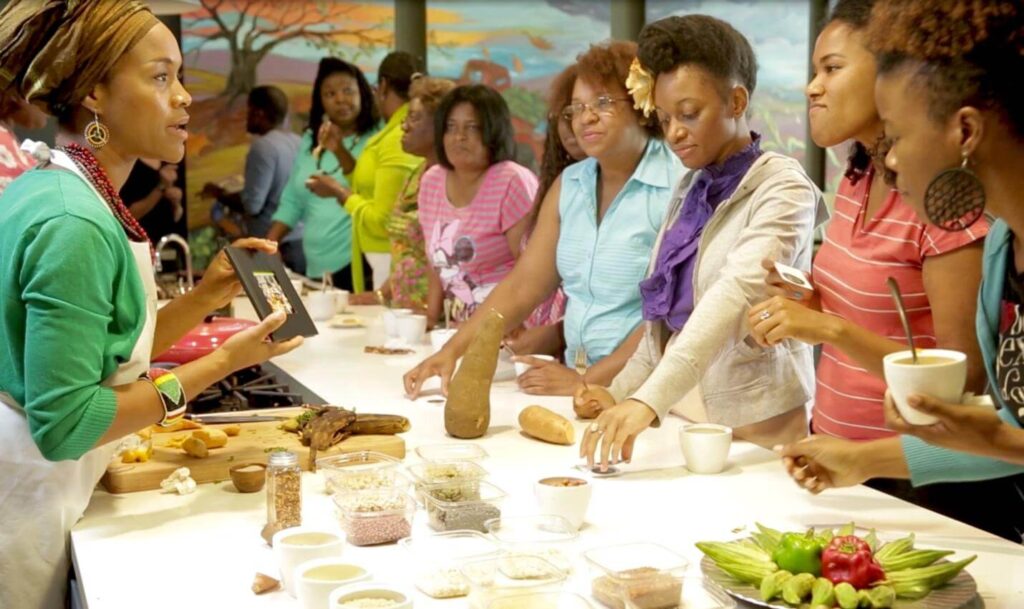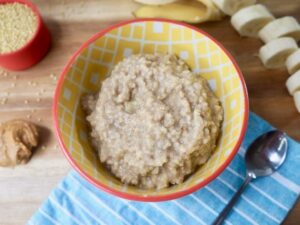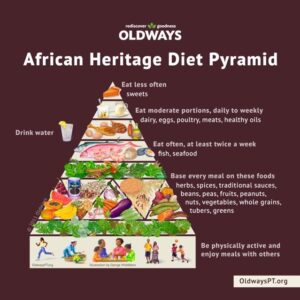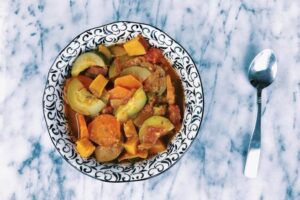
Heritage diets from around the world offer a culturally relevant, nutritionally-dense, and flavor-forward alternative to Western style diets or restrictive fad diets, and yet research on non-Mediterranean dietary patterns has yet to reach its full potential. A new randomized controlled study focused on the Kilimanjaro region of Northern Tanzania adds to the growing body of research demonstrating the healthfulness of African Heritage diets.
 In this study, seventy-seven healthy Tanzanian adults from both rural and urban areas in the Kilimanjaro region were randomized to either a Western style diet (with foods like white bread, sausage, pancakes, and French fries), a traditional heritage diet (with foods like millet porridge, okra, beans, and avocado), or a hybrid diet that included Western diet foods and a traditional fermented banana and millet beverage (called mbege), for one to two weeks. The scientists measured their blood for markers of inflammation immediately after the intervention diet, and then again four weeks after returning to their habitual diet (Western diet for the urban dwellers, heritage diet for the rural dwellers).
In this study, seventy-seven healthy Tanzanian adults from both rural and urban areas in the Kilimanjaro region were randomized to either a Western style diet (with foods like white bread, sausage, pancakes, and French fries), a traditional heritage diet (with foods like millet porridge, okra, beans, and avocado), or a hybrid diet that included Western diet foods and a traditional fermented banana and millet beverage (called mbege), for one to two weeks. The scientists measured their blood for markers of inflammation immediately after the intervention diet, and then again four weeks after returning to their habitual diet (Western diet for the urban dwellers, heritage diet for the rural dwellers).
 Switching to the African Heritage diet for just two weeks resulted in sustained reductions in inflammatory and metabolic plasma proteins, which indicate improved inflammation. Similarly, drinking the mbege daily for a week led to a rapid shift in cardiometabolic proteins and a sustained lowering of inflammatory proteins.
Switching to the African Heritage diet for just two weeks resulted in sustained reductions in inflammatory and metabolic plasma proteins, which indicate improved inflammation. Similarly, drinking the mbege daily for a week led to a rapid shift in cardiometabolic proteins and a sustained lowering of inflammatory proteins.
Today, anyone can reap the benefits of adding more African Heritage foods to their diet, no matter where they live. Many of the foods included in the African Heritage Diet intervention are represented on Oldways’ African Heritage Diet Pyramid, which was developed by Oldways and experts in African heritage culinary history and nutrition in 2011.
A Taste of African Heritage, a six-week cooking and nutrition curriculum based on the African Heritage Diet Pyramid, has been taught all across the country since its inception in 2012, and is also available as an on-demand e-course. There is also a children’s spinoff for kids ages 8-12, filled with sensory activities and fun recipes such as banana millet breakfast porridge.
 To bring the African Heritage diet into your own kitchen, sample crowd-favorite African Heritage recipes from Oldways’ programming, such as a mafe stew or after chop fruit salad. As the new research demonstrates, health benefits can start to emerge with even just a week or two of embracing a heritage diet. But once you get a taste of the vibrant flavors and energizing foods, our guess is that you won’t want to let this diet drop out of your lifestyle any time soon.
To bring the African Heritage diet into your own kitchen, sample crowd-favorite African Heritage recipes from Oldways’ programming, such as a mafe stew or after chop fruit salad. As the new research demonstrates, health benefits can start to emerge with even just a week or two of embracing a heritage diet. But once you get a taste of the vibrant flavors and energizing foods, our guess is that you won’t want to let this diet drop out of your lifestyle any time soon.






Leave a comment